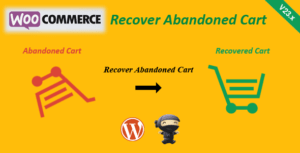Deactivate Plugins Per Page – Improve WordPress Performance
If you have a plugin that requires another plugin to be active in order to work, you need to add these plugins in a plugin group, and add deactivation rules to that group. Deactivating only one of these could lead to errors or the global deactivation of the other plugin.
₹1,630.72 Original price was: ₹1,630.72.₹244.61Current price is: ₹244.61.

Deactivation Rules Options
1. Deactivation Type
– Deactivate on selected URI
– Deactivate on all URI except selected
2. URI selection type
– Page
– Custom
3. [Page] Select pages to extract URI from (it will update automatically if the page slug changes)
3. [Custom] Custom URI condition
– URI equals …
– URI does not equal …
– URI contains …
– URI does not contain …
– URI starts with …
– URI does not start with …
– URI ends with …
– URI does not end with …
– URI matches the regular expression …
Since version 1.9.0 you can export all your deactivation rules and settings of the plugin and import them on another site. Rules with Page URI selection type, will be skipped if the same pages (both same ID and slug) do not exist on the destination site. In a multisite you can import into multiple sites at once.
Custom PHP function as condition
Since version 1.15.0 you can add the name of your own PHP function to a deactivation rule so it is used as an additional condition. The rule will only work if your function also returns true. The function must be loaded in a must use plugin so it is available before regular plugins load.
Client Reviews
Precautions
Group plugins that work together
If you have a plugin that requires another plugin to be active in order to work, you need to add these plugins in a plugin group, and add deactivation rules to that group. Deactivating only one of these could lead to errors or the global deactivation of the other plugin.
Don’t deactivate plugins required by your theme
Some themes require certain plugins in order to work properly. If you deactivate these plugins you may experience problems.
Deactivation hooks will not run
When plugins are deactivated via my plugin, the actual deactivation function is not called, and the deactivation hooks will not run. Instead, to make it work per page, plugins are just dynamically removed from the list of active plugins before the page loads. This means that if a plugin has some actions that it performs when it is deactivated, these actions will not run when it is deactivated via my plugin.
For example, some plugins add code to your ”.htaccess” file when they are activated, and when they are deactivated, they remove it. In this case if you add a deactivation rule with my plugin to stop the plugin on a certain page, the ”.htaccess” code will still be there and work on that page, even though the plugin will not be active on it.
Don’t use this plugin to hide sensitive data
It is not made to work securely for that. It is mainly made for site speed optimization and it can also be used for debugging or solving plugin compatibility issues.
Backup your site
Deactivating plugins per page is not a natural thing for WordPress, and plugin and theme developers are not expecting that. It works great in most cases, but sometimes can lead to problems, to other plugins being deactivated or settings being changed. Always have a recent backup of your site and if you can, test your changes in a staging site.



















Global Gallery – WordPress Responsive Gallery
₹5,401.38Original price was: ₹5,401.38.₹810.21Current price is: ₹810.21.